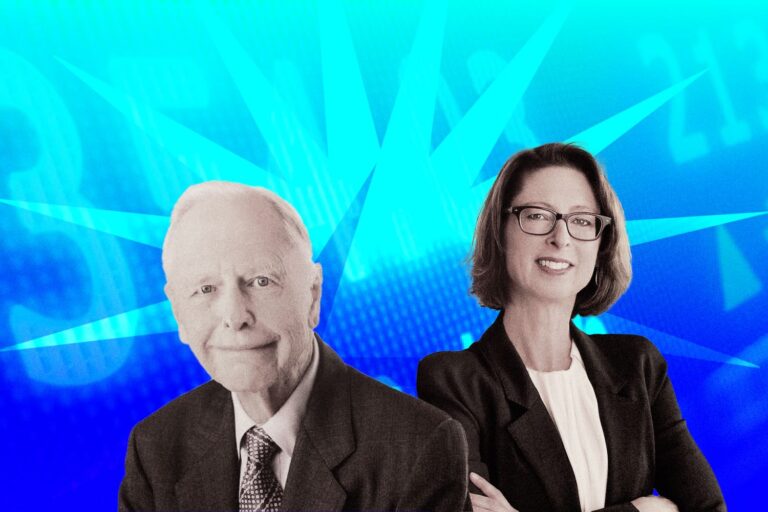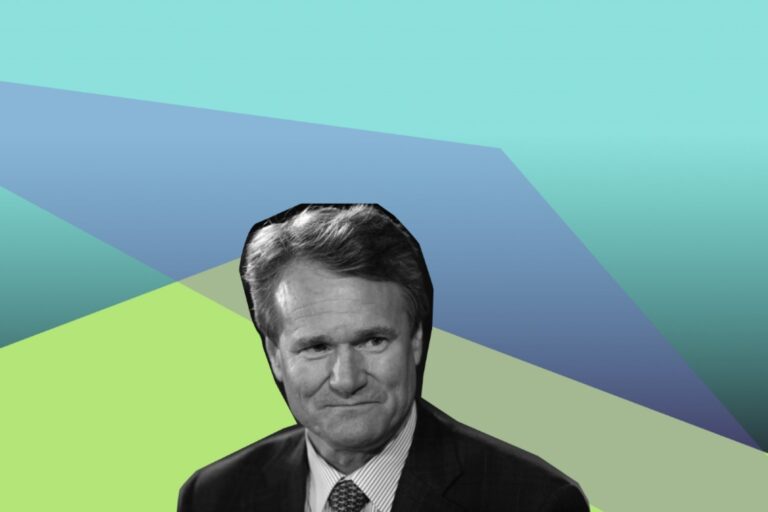What to Withdraw from NerdWallet’s Story of Drifting Startup into Real Deal Company?
Always dreamed of having something of his own that offer real values – something entrepreneurial, yet never felt like he had the permission to, said Tin Chen CEO and co-founder of NerdWallet.
Sharing the Upheavals of Nerdwallet’s Founding Story
With a background in finance from Stanford, Chen back in day dedicated all his energy for hedge funds like Perry Capital and JAT Capital Management, just to found out right on Christmas Day that he was being laid off.
Which experience to himself was super devastating as he is a very achievement-oriented kind of guy, external status and all that stuff is most of his concern, especially with a Stanford degree.
But for now, looking back being pushed off that ladder is the best things that ever happened to him. The trigger that pulled out a successful entrepreneur in Chen.
How Aha Moment Comes from Small Inconveniences
At 35, Chen said he got the idea for NerdWallet while laying at home “sitting around twiddling my thumbs”, not knowing what the plan is.
And comes a fateful email of his sister far away in Australia, wondering if he could help her out finding a credit card with lower foreign transaction fees. Chen said he will be back in three minutes, but apparently it shocked that there is nothing on Google that was not basically marketing or promotional material.
As a professional, with all that finance experience still it took him a week of considerable research to gather enough of what many chief banks and credit card companies had to offer. Breaking her options down details by details on an Excel spreadsheet and soon the sheet got passed around widely, even outside of his own group of family and friends.
It is like an awakening moment when Chen was strike with this “real shop-ability problem in financial services,” where it takes a lot of efforts and time for consumers to sift through banks’ dense facts and figures. Not to mention how a lot more difficult it is to compare products without a professional financial advisor. And of course:
“Most consumers want to know that they can trust somebody who is not beholden to one financial institution.” – said Dan Yoo, COO of NerdWallet. Because it is a fact that your checking account provider might offer you a mortgage, an auto loan, finally insurance or wealth management services and make something around $50,000 off of you over the course of your life. That is how the whole system works with all the middlemen that make it hard for consumers to have a transparent access to such services – claims Chen.
So, he wanted to offer more a direct-to-consumer process with online financial services advice. Working out of his Manhattan apartment, Chen manages to cover all start-up costs like web hosting and domain fees, software with his only $800 – exactly how NerdWallet was born.

In brief, the web pivots around providing pros and cons facts of different financial services and to answer questions, provide advice to aid people with their decisions through valuable articles written by professional personal finance journalists.
With minor steps comes minor achievements, nine months after the launch, Chen made only about $75 off the site with the working hours of sixteen to twenty hours a day. The founder happened to be forced to move in with his girlfriend to save money.
“I was eating Subway everyday… It was like anything you could do to save money,” Chen says.
The company’s second year saw brighter days as it made something like $60,000 in revenue. However, that is not a number of a living business, knowing that Chen was uncertain if he should keep feeding this brainchild, or be back with a position in another hedge fund.
But the economic recession back then seems to want Chen to stick with his NerdWallet, there are no opportunities at Wall Street firms. Which looking back Chen only feel so grateful for that bad timing in the past has offered him and the company another chance to become something real.
“It still seemed like lunacy to go and do this startup thing relative to doing the sure thing, but it was showing just enough early traction that I was thinking ‘this thing could work,’” he remembers.
Nerdwallet the Sequel: Hard Work Pays off

Finally, as revenue multiply from month-to-month to one point in mid-2010, the business officially took off. Since then Chen know for sure he is never going back to Wall Street.
Around $105 million in funding was successfully raised by 2015. However, no companies could live long without the hazards. In 2017, the company after missing profits was forced to lay of dozens of people, about 11 percent of its workforce which event according to Chen is “extremely painful”. But he also made clear his optimism for the company’s future as it started to focus more on mobile app and online memberships that help users find their credit scores as well as set and track various goals.
As for the time being, with the grown of NerdWallet, Chen confesses he had run into a lot of humbling experiences, and such circumstances had built in him the ability to confidently learn from failure which has absolutely been essential to his company’s success. It has also kept him focus.
The founder also came straight with his biggest mistake that when NerdWallet was born, he was not in a great place along with all the external pressure, sometimes Chen found himself more concern on building a successful company than a mission-oriented dedication. But he was lucky, be awaken before it is too late, for now the site is all about offering readers the type of advice they were not getting elsewhere online.
Says Chen: “If we focus on doing what’s right, maybe we can build a relationship with a person so they come back, time and time again.”
From Entrepreneur to Executive: Mindsets Worth Noting from Tim Chen
With that first fall, Chen and his team know it is a must to reassess everything. They could not operate the same ways they used to, especially, Chen himself in a role of not only a founder but an CEO as well. There has to be new perspectives, new lesson, and mindsets that he needs to reach over to catch up – to grow along the company.
Let’s break down what had light up in him!

#1 Practice Self-Reflect as Founder Is Where Culture Breeds
Looking back, Chen describes his company growing journey as a constant rollercoaster, which could never settle safe and sound. The company was either understaffed or trying to incorporate new people or attempting to get a new feature or product off the ground. And just right where you thought you have it all through and clear, it would again completely change. The ‘right’ culture and processes always felt like a moving target, amongst which situation as a leader Chen has to be that main column that hold up his whole team by keeping his mind and perspective correspondent with every new stage of challenges.
While companies tend to reflect their founders, he was not aware of just how far his behavior was rippling out into the waters of NerdWallet’s culture. Chen only realized when he hired an executive coach to be revealed that the team thought when it came to performance and feedback, he was not candid or constructive. The fact that founders usually mistaken healthy financial status, oriented metrics, and “seemingly happy” employee as successful executing, however, those are just the surfaces. In hindsight, it is not that simple to lead a company.
Chen confesses as a first-time manager, he was very inexperienced. He had assumptions about culture that were faulty because of his background at the hedge funds, the Wall Street who approach of hiring analytical, aggressive folk with great pedigree and leaving them to hash it out did not match with the recipe of a sustainable startup. Chen was too focus on the hiring profile and reducing employees to a target number which draw everyone to individual success. Meanwhile, unifying the team a round one big goal and establish a culture centered on one common purpose is what needed for such organization thrive.
Culture starts with how the founder behaves. It gets cascaded throughout the company whether you like it or not. To change the culture, you have to change yourself. Too many founders realize this too late in the game — and I was almost one of them.
– Tim Chen
Especially, another mistake Chen recommend founders to notice in term of their behavior, as sometimes you see founders are putting culture on the back burner or tempting to blame cultural problem on the people around them, with signs of ‘I guess I did not hire the right players.’ Yet, training program and coaches has enabled Chen to realize that they were not the wrong people and its Chen himself had set up a system that incentivized them to behave like the wrong one.

Hiring the ‘wrong’ people is not the root of organizational issues. But rather a poorly engineered regime, misleading cultures and bad examples cascaded from the top that is – that prompt people to the wrongs.
And the solution here is to make yourself get to that place where you believe feedback is a gift, which would help you become a better leader. With people and theirs mirror in hands, you all can lift up the company together.
#2 Approach Decision without Your Entrepreneurial Ego
Overcome his ego is another mindset shift Chen has taken to step up better as an executive. Chen recalls, for entrepreneur, ego is sure a strength because with a healthy dose of it, early-stage founders would beat up all obstacle along the way and brave enough to take the leap – to stubborn enough to stick around.
Eventually, even after exited that early phrase, still this attitude keeps tagging along. When you are leading projects, figuring our sales, or overseeing every aspect of the organization, it is easy to slip into a ‘I have to do this’ and reluctant to give up the controls – which does nothing but hold the organization back.
Push aside your “founder’s instinct” to make room for the perspective of the team you’ve worked so hard to assemble — and the customers you’ve battled to win over.
To be specific, there is ego is decision-making. Chen used to be involved in everything, that he could add value to most decisions, like back when the time NerdWallet were about 200 people, it was him interviewed them all. Sometimes in meetings, Chen came up with reasonable sounding explanation to point out holes in every single idea. But while furthering the team’s thinking, everyone started to overanalyzing everything and the company could not move quickly enough. Soon, this whole experience had taught me that:
The best thing to do with organizations at scale is to test a lot of reasonable hypotheses, not to cut back on the number of fail hypotheses
The Bottom Lines
Founders are destined to be have holes in either the work that built their business or the management skills necessary to grow it. As company growth depends on constant evolution, it is your job to make sure yourself is in a strong position to lead the way, of course cannot without the present of your many best teammates.








